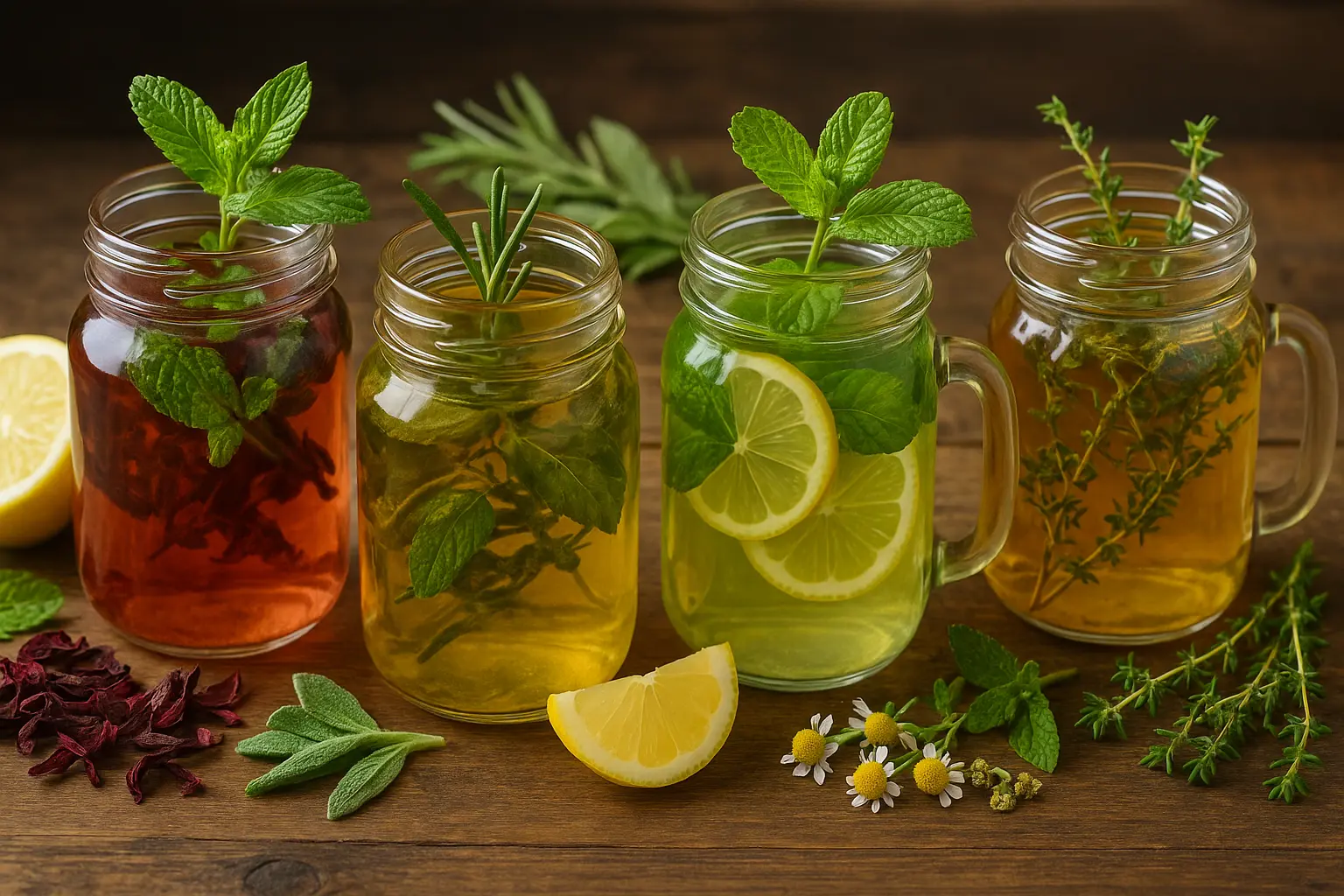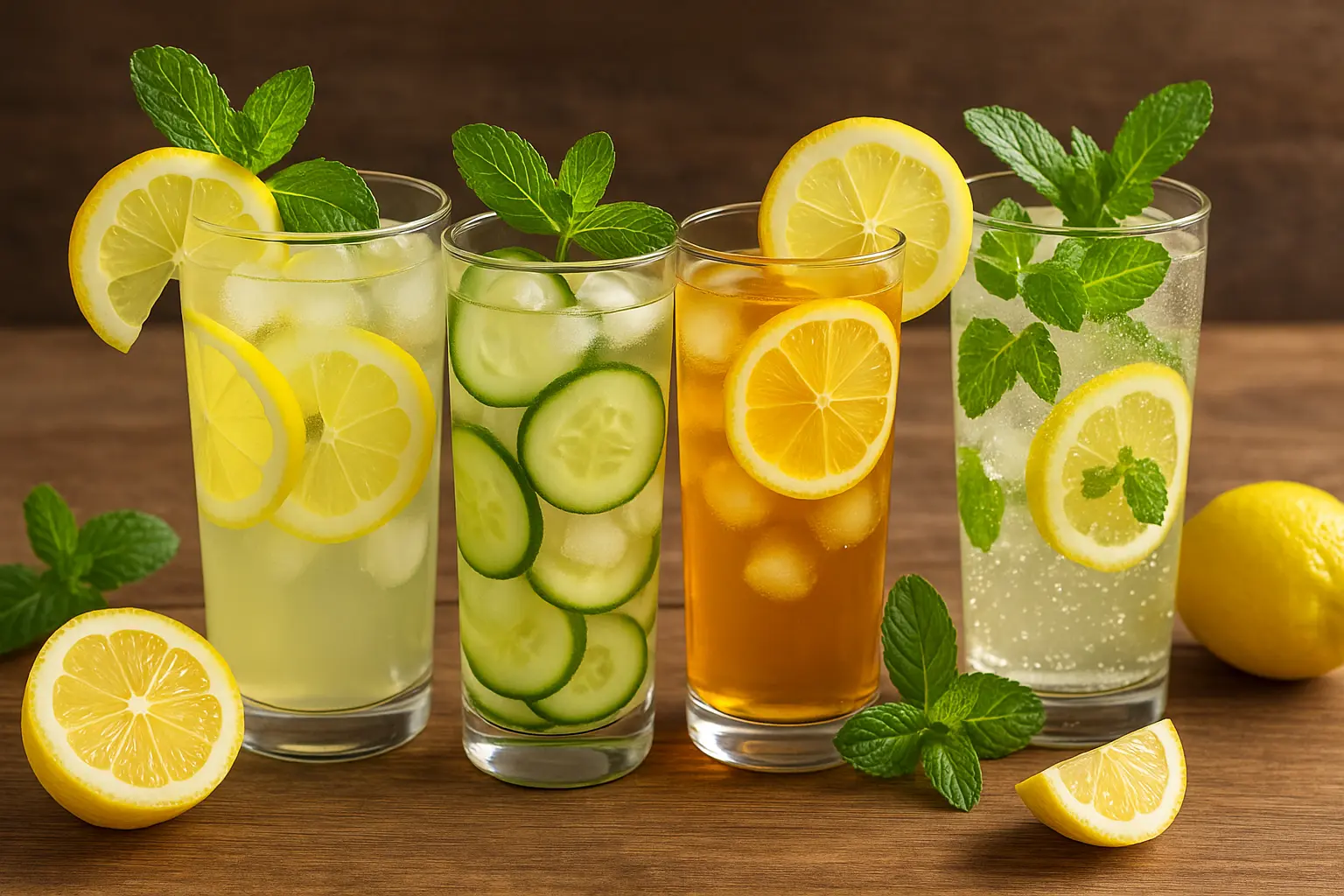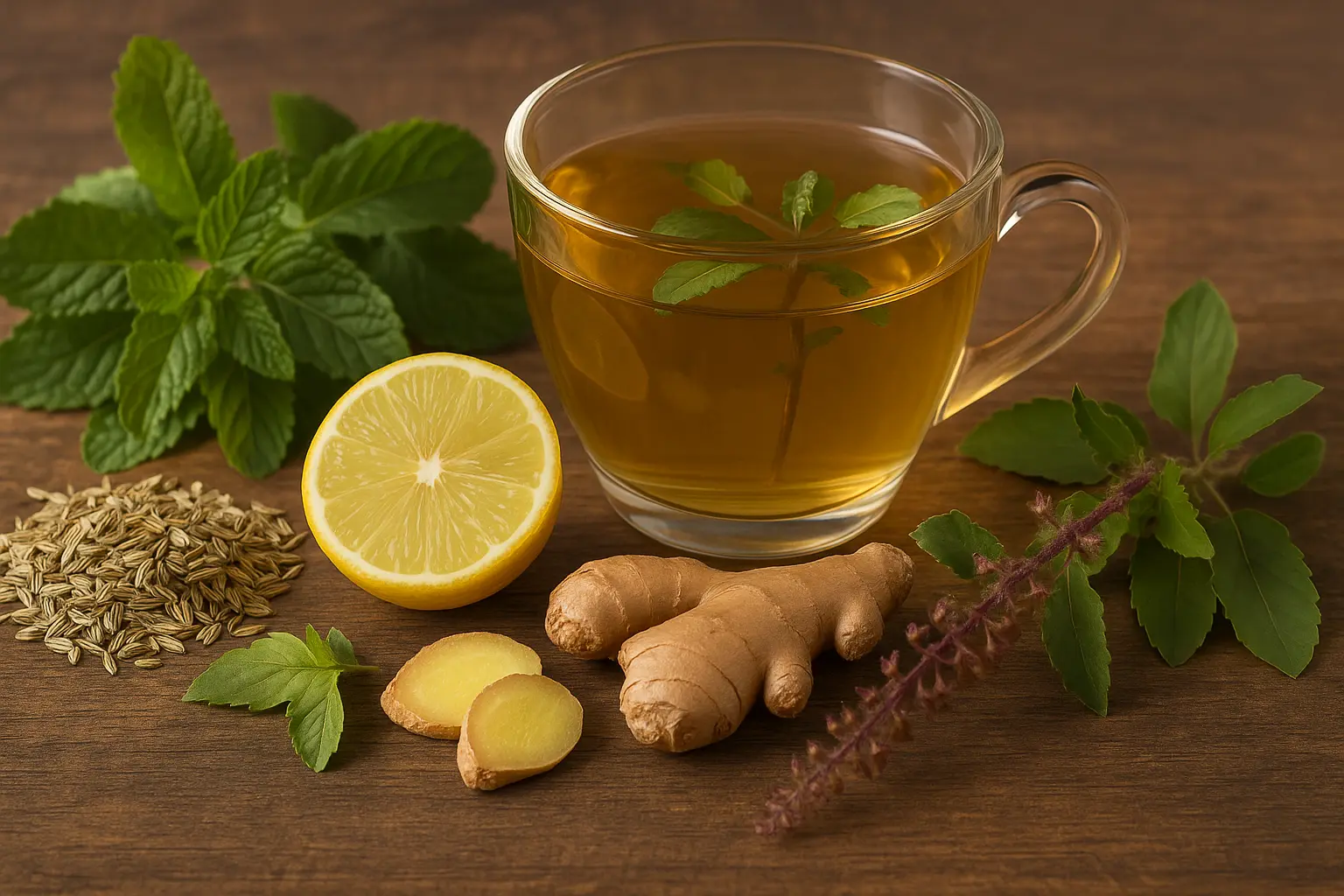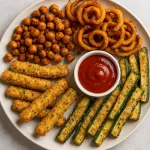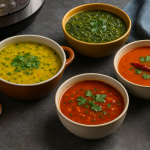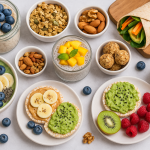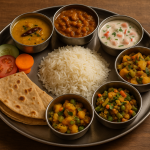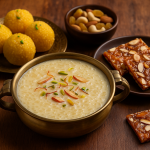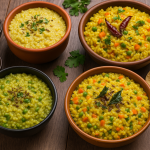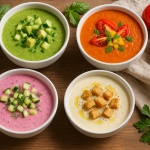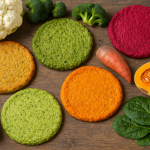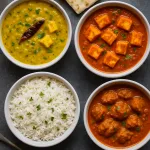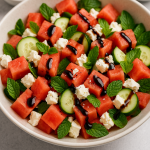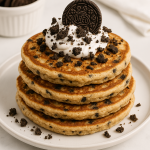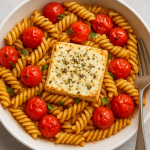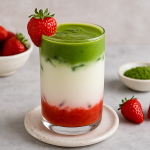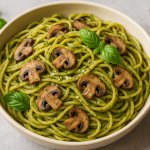Refreshing Herbal Infusions for Wellness and Relaxation
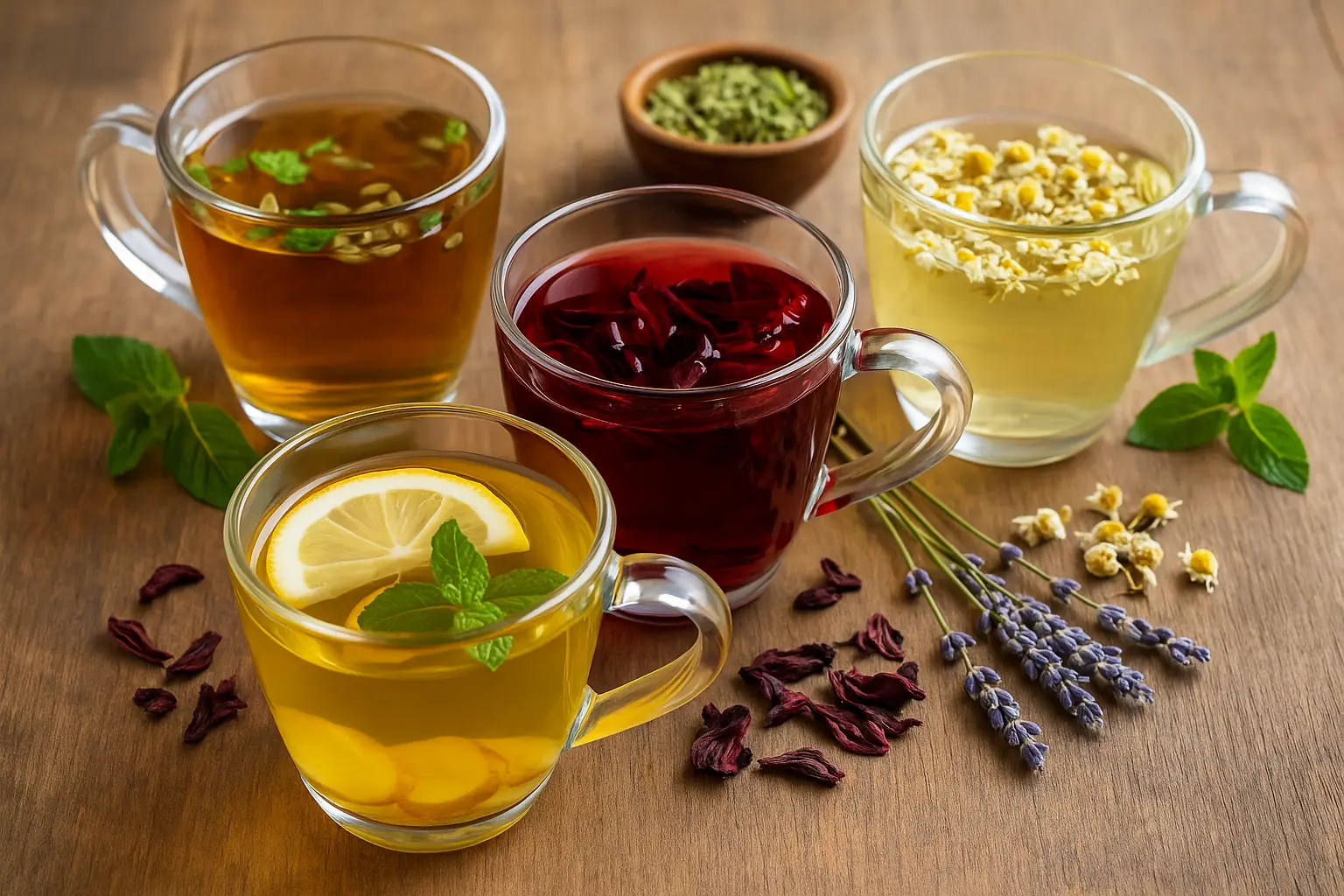
Herbal infusions aren’t just fancy teas—they’re ancient wellness brews used in cultures around the world for centuries. In today’s fast-paced lifestyle, these soothing drinks are enjoying a revival, serving as an all-natural way to hydrate, relax, and rejuvenate your body and mind.
In this blog, we’ll explore the best herbal infusion recipes for wellness and relaxation, the benefits of each herb, brewing tips, when to drink them, and how to tailor them to your specific health goals. Whether you’re looking to improve digestion, reduce stress, or simply add a calming bedtime drink to your routine—this guide is your herbal bible.
Table of Contents
What Are Herbal Infusions?
Health Benefits of Herbal Infusions
Key Herbs and Their Benefits
Essential Brewing Tips
Must-Try Herbal Infusion Recipes
Herbal Infusions for Specific Needs
Herbal Infusion vs Herbal Tea: Is There a Difference?
Storage Tips and Shelf Life
FAQs About Herbal Infusions
Final Thoughts
1. What Are Herbal Infusions?
Herbal infusions are beverages made by steeping herbs, flowers, seeds, leaves, or roots in hot water. Unlike true teas (like black or green), herbal infusions are typically caffeine-free and made purely from botanicals.
Why they matter:
They are a gentle yet powerful way to draw out the vitamins, minerals, and phytochemicals found in herbs, offering both flavor and wellness in a cup.
2. Health Benefits of Herbal Infusions
Drinking herbal infusions regularly can:
Reduce stress and anxiety (chamomile, lavender, lemon balm)
Improve digestion (peppermint, fennel, ginger)
Aid sleep (passionflower, valerian root)
Support immunity (echinacea, elderberry, tulsi)
Enhance detoxification (dandelion, nettle)
Balance hormones (red raspberry leaf, ashwagandha)
Provide antioxidants (hibiscus, rooibos)
3. Key Herbs and Their Benefits
Here’s a breakdown of the most popular herbs used in infusions and what they do:
| Herb | Benefit |
|---|---|
| Chamomile | Calming, improves sleep |
| Peppermint | Aids digestion, relieves headaches |
| Ginger | Anti-inflammatory, boosts immunity |
| Hibiscus | Rich in antioxidants, supports heart health |
| Tulsi (Holy Basil) | Reduces stress, balances cortisol |
| Lemon Balm | Mood booster, calms nervous system |
| Fennel | Bloating relief, hormone balance |
| Dandelion | Liver detox, supports digestion |
| Lavender | Stress relief, soothes nerves |
| Nettle | Iron-rich, natural detoxifier |
4. Essential Brewing Tips
Getting the most out of your infusion requires proper preparation:
Water temperature: Use just-boiled water (about 90-95°C).
Steeping time: 5 to 15 minutes depending on the herb.
Cover while steeping: To keep essential oils from evaporating.
Use fresh or dried herbs: Both work well; adjust quantity accordingly.
Strain and serve: Add optional sweeteners like honey or jaggery.
5. Must-Try Herbal Infusion Recipes
Here are some easy, rejuvenating recipes to make at home:
5.1 Chamomile & Lavender Bedtime Infusion
Ingredients:
1 tsp dried chamomile flowers
½ tsp dried lavender buds
1 cup hot water
Instructions:
Add herbs to a teapot or cup.
Pour hot water and cover.
Steep for 10 minutes.
Strain and sip before bedtime.
Best For: Sleep, anxiety relief
5.2 Hibiscus & Rosehip Cooling Drink
Ingredients:
1 tbsp dried hibiscus petals
1 tsp dried rosehip
2 slices orange (optional)
1 cup hot water
Instructions:
Add herbs to a teapot.
Pour boiling water, let steep for 10-15 minutes.
Chill and serve over ice.
Best For: Summer hydration, antioxidants
5.3 Ginger-Lemon Immunity Booster
Ingredients:
1-inch fresh ginger (sliced)
Juice of ½ lemon
1 tsp honey (optional)
1.5 cups water
Instructions:
Boil ginger in water for 10 mins.
Strain and add lemon juice.
Stir in honey and serve warm.
Best For: Colds, sore throat, energy
5.4 Mint & Fennel Digestive Blend
Ingredients:
1 tsp dried peppermint
½ tsp fennel seeds
1 cup hot water
Instructions:
Steep the herbs in hot water for 10 minutes.
Strain and sip slowly after meals.
Best For: Bloating, gas, post-meal relief
5.5 Tulsi, Ashwagandha & Cardamom Balance Tonic
Ingredients:
1 tsp dried tulsi leaves
¼ tsp ashwagandha root powder
1 crushed cardamom pod
1.5 cups water
Instructions:
Simmer all ingredients for 10 minutes.
Strain and enjoy warm.
Best For: Hormonal balance, adrenal support
6. Herbal Infusions for Specific Needs
| Wellness Goal | Recommended Infusion |
|---|---|
| Sleep | Chamomile + Lavender |
| Detox | Dandelion + Nettle |
| Digestion | Fennel + Peppermint |
| Anxiety | Lemon Balm + Holy Basil |
| Hormonal Support | Red Raspberry Leaf + Ashwagandha |
| Immunity | Ginger + Turmeric + Tulsi |
| Summer Cooling | Hibiscus + Mint + Rose Petals |
7. Herbal Infusion vs Herbal Tea: Is There a Difference?
While the terms are often used interchangeably, there are subtle differences:
Herbal Tea: Usually a quick steep using leaves or flowers.
Herbal Infusion: Often stronger, steeped longer, or simmered (especially roots or barks).
Infusions are generally more medicinal, while teas may focus more on flavor.
8. Storage Tips and Shelf Life
Dried herbs: Store in airtight jars away from sunlight. Use within 1 year.
Prepared infusions: Consume within 24 hours if kept refrigerated.
Tip: Brew a large batch and store in glass bottles for iced versions.
9. FAQs About Herbal Infusions
Q1. Can I drink herbal infusions daily?
Yes! Many herbs are safe for daily use. Just rotate ingredients to prevent overuse of any one herb.
Q2. Are herbal infusions safe for kids or pregnant women?
Not all herbs are suitable. Always check herb-specific guidelines and consult your doctor.
Q3. Can I mix multiple herbs in one infusion?
Absolutely. In fact, blending herbs enhances both flavor and wellness benefits.
Q4. Can I add sweeteners or milk?
Yes to sweeteners like honey or jaggery. Milk is usually avoided unless you're preparing a decoction (like turmeric milk).
10. Final Thoughts
Herbal infusions are more than just drinks—they’re rituals of wellness. Whether it’s a calming cup before bed, a cooling hibiscus tonic in summer, or a warming ginger elixir in winter, each sip offers both pleasure and purpose. They’re also cost-effective, easy to make, and deeply rooted in global healing traditions.
If you’re looking to take charge of your well-being without pills or synthetics, herbal infusions are a delicious place to start. So stock up your pantry, grab a kettle, and let nature’s pharmacy work its magic—one cup at a time.
Leave a comment
Your email address will not be published. Required fields are marked *


